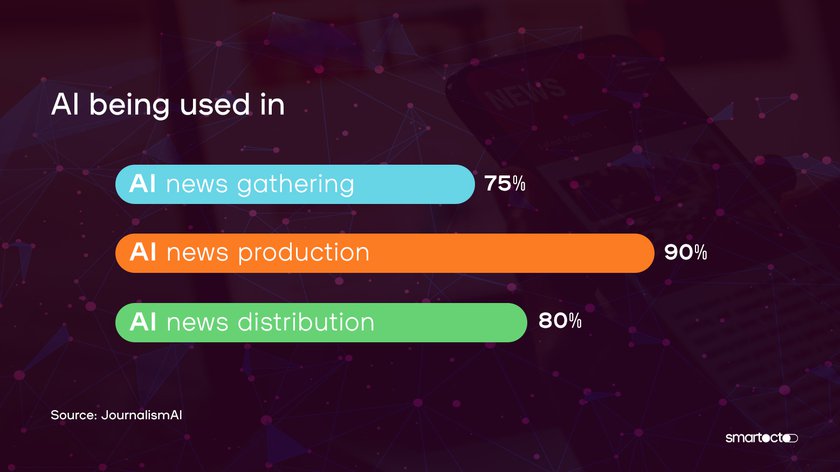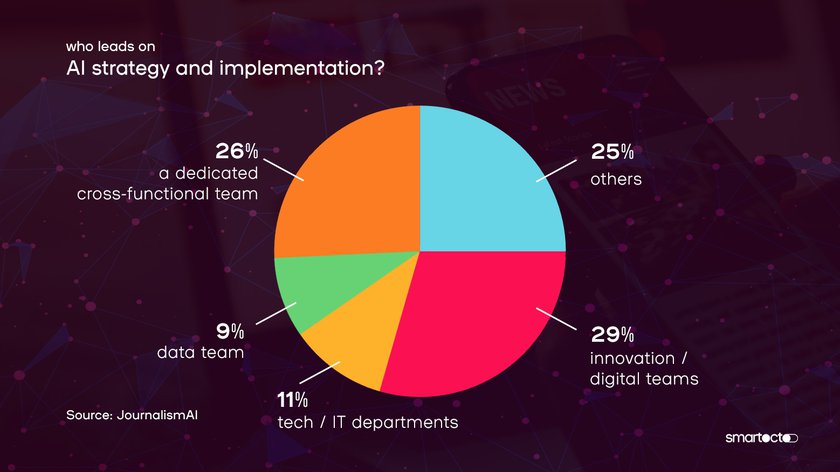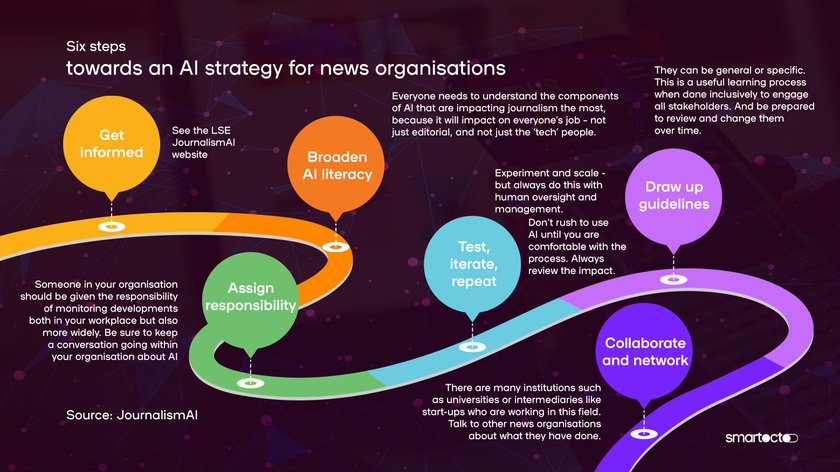Whatever your level of enthusiasm for Artificial Intelligence has been, now is the time to embrace learning to work with it. In this month of 'smartoctober,' we provide guidance - starting with an overview of the current state of the media sector.
Journalists continue to express concerns about Artificial Intelligence, according to a recent, comprehensive survey published by JournalismAI. The challenge of keeping up with the rapid evolution of AI was a key finding of the report, which consulted 105 news and media organisations from 46 different countries on the subject of AI and associated technologies. We'll be quoting the report throughout this blog.
Approximately 40% of respondents indicated that their approach to AI has not changed over the past few years, either because they are still at the beginning of their AI journey, or because AI integration remains limited in their newsrooms. More than 60% wonder whether the use of AI technologies maintains important values such as accuracy, fairness, and transparency.
_____________________
It’s smartoctober! Every year we spend a month deep diving into a subject or skill set that we deem to be absolutely essential to newsrooms around the world. This year it’s time to consider AI.
- Follow us on LinkedIn
- CEO Erik van Heeswijk reveals AI-driven improvements at smartocto in a webinar.
- Check out our first webinar about welcoming AI into the newsroom
- Catch up on next week’s blog about starting to use AI right now
- Find out how AI is changing content analytics in our third blog
- Or the last one: AI as virtual assistant for newsrooms
_____________________
Google search is also based on AI
During the presentation of the research results in Bonn, the report’s lead researcher Charlie Beckett did what has been desperately needed to be done and managed to convince even the most sceptical attendees that they are, in fact, already using AI, for instance when using Google during their research. "And you're going to use it a lot more. And every source or subject you're going to report about is going to use it." His summary: "You need to know about AI."
What we're truly waiting for are tangible, concrete use cases that stand out amidst the noise. This was a topic extensively discussed by news site publishers last week at the INMA Media Innovation Week in Antwerp. According to almost all speakers, AI is currently shaking up the media world.
Reuters, the news agency, recently echoed similar sentiments:
‘There is no doubt that AI can enhance the way news is reported and delivered, as well as improve workflow efficiencies for businesses across the board.’
When AI is introduced in an editorial setting, Reuters' Global Editor Jane Barrett poses three important questions:
- Can AI replace work that human beings are doing but may not need to be doing?
- Can it augment and add value to the work we’re doing?
- What role are experiments going to play in transforming our work?
Reuters is already attempting to use AI to detect fake news, including manipulations of photos, videos, and text, but there is a caveat as Barrett explains: “We are excited, and we want to experiment, but we want to experiment responsibly.”
AI is being used in news gathering, production and distribution
What are other media organisations doing? Around 85% have at least experimented with writing code, image generation, headline generation, search engine optimisation, and authoring summaries. When asked how media are using AI, this is the answer:






